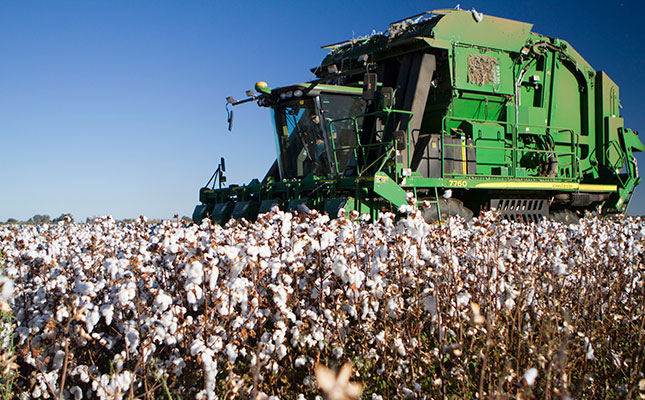
Photo: FW Archive
Global cotton consumption is expected to decline 11,8% this year compared with the previous season, which will reduce global trade to 8,26 million tons in 2019/2020, according to the International Cotton Advisory Committee (ICAC).
Mario Botha, agricultural economist at Cotton South Africa (Cotton SA), said containment measures for the coronavirus disease (COVID-19) global pandemic, unprecedented shifts in the labour market, and growing unemployment led to a sharp decrease in global demand.
“The current economic environment is an unusual slowdown [compared with] a typical recession, as the containment measures for COVID-19 have closed [down] business activity in a way not experienced in the modern era. The economic recovery will be able to begin only once the health recovery has begun.”
Botha said the ongoing uncertainty due to COVID-19, combined with the existing environment of trade tensions, was also affecting farmers’ planting decisions. He pointed out that in 2020/2021, the area under cotton production globally was expected to decline 4% to 33 million hectares.
Locally, the fourth official estimate by Cotton SA indicated a crop of 144 260 bales of fibre, or a 1% increase compared with the previous month’s estimate.
According to Botha, this could be attributed to an increase in yields, as well as a potential increase in hectares planted.
Hennie Bruwer, CEO of Cotton SA, said he believed that despite the decline in global consumption, South Africa’s cotton industry was in a strong position.
“In terms of the global cotton industry, South Africa is very small, and about 85% to 90% of South Africa’s cotton is exported. Our size and good quality will make it easier to trade our cotton,” he explained.
He added that contracts had also been agreed in advance, while traders had already hedged against any risks associated with the harvest.
“To date, I have no knowledge of any contracts that have been cancelled.” However, he stressed that the season has only just started, and cotton that was being processed would only be exported from June onwards.
ICAC’s most recent price projection for the 2019/2020 season had been revised to USc71,4/pound (about R28/kg) for this month, while the expectation for the 2020/2021 season as a whole was set at USc56,9/pound (about R23/kg).
“Although we will not see the same world prices as we did over the past two years, the weaker rand- dollar exchange rate will result in more competitive prices being realised for cotton lint.
“Many industries are experiencing uncertainty due to the COVID-19 pandemic; for the cotton industry, the ‘silver lining’ will be exports and [obtaining] good prices to support it.”









